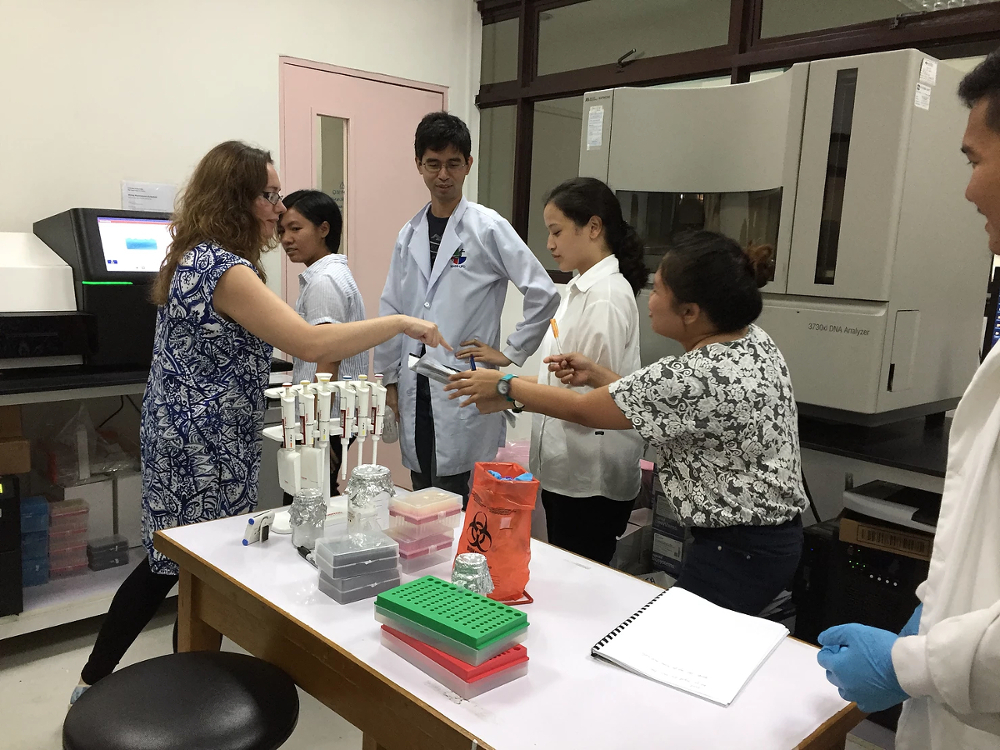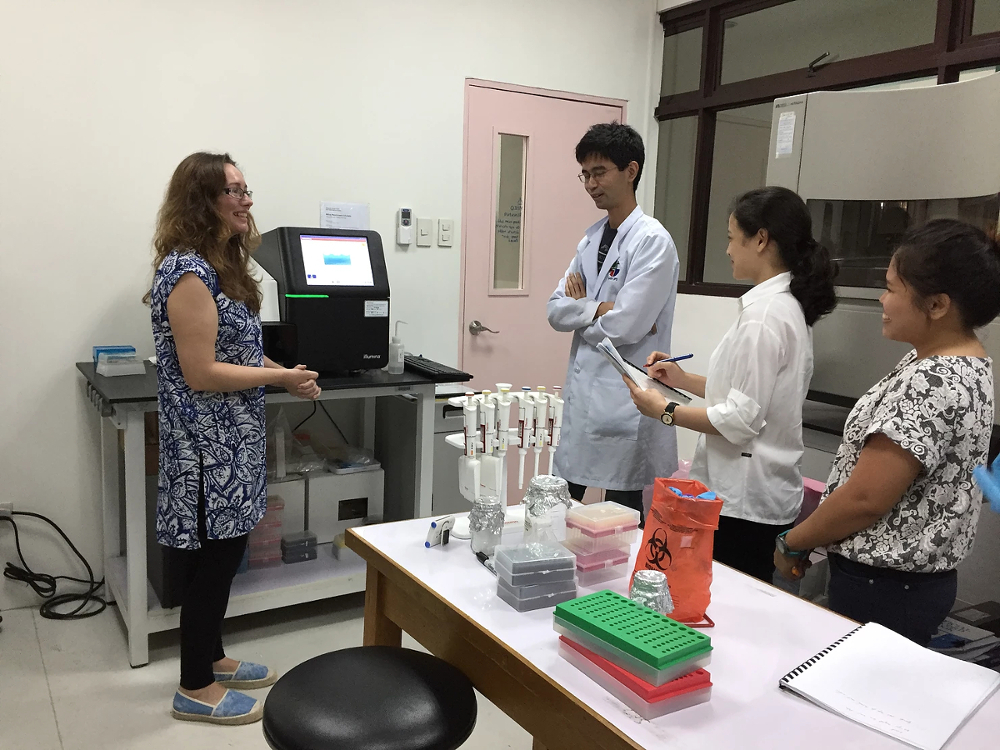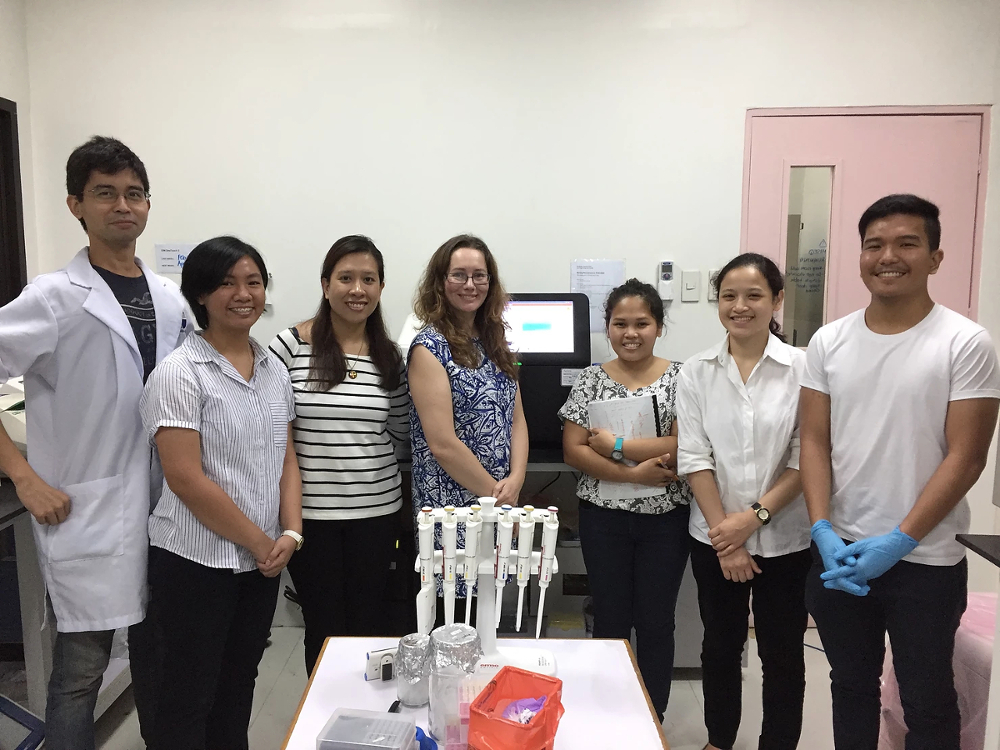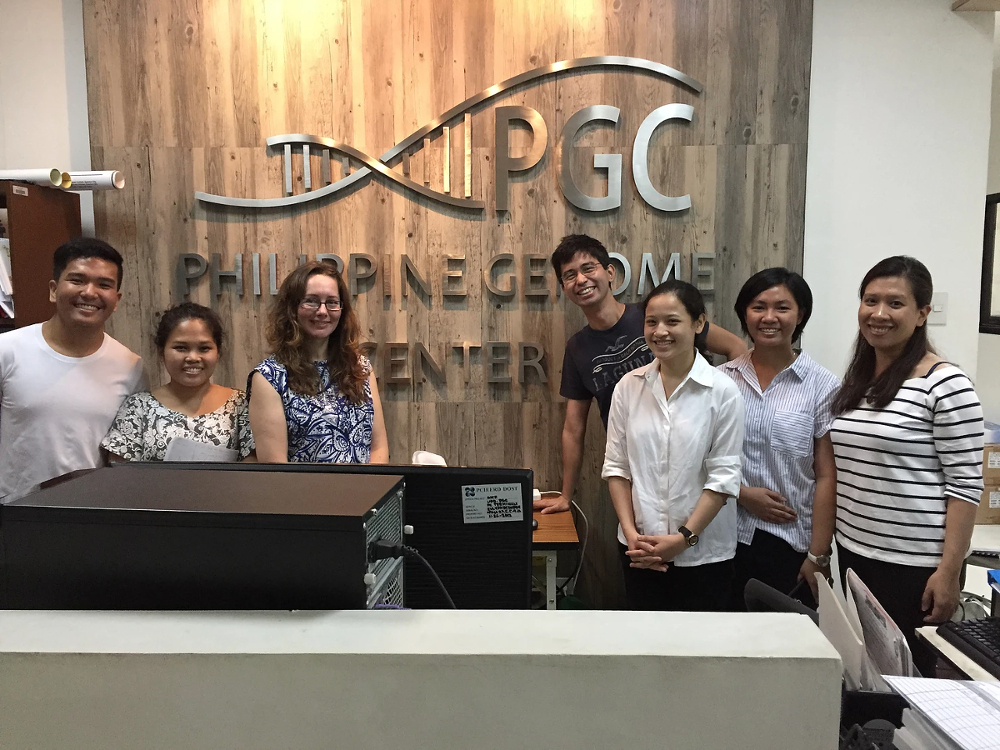DATE:
18-26 April 2017
VENUE:
DNA Sequencing Core Facility Lab, PGC
Dr. Ana Da Silva Filipe, research fellow and next generation sequencing (NGS) facility manager at the Center for Virus Research, University of Glasgow, led participants in the whole-genome sequencing of the Hepatitis C virus in a training workshop conducted by the University of the Philippines National Institutes of Health (UP-NIH) and hosted by the Philippine Genome Center (PGC) on 18-26 April, 2017.
The program, which consisted of lectures, group discussions, and hands-on training, aimed not only to develop knowledge on viral genome sequencing, but also to educate in sample handling, NGS technologies and workflows, and general molecular biology techniques. Participants involved come from UP-NIH, PGC, the Research Institute for Tropical Medicine (RITM), and The Medical City.
NGS platforms are able to sequence millions of DNA base pairs in a single run. Viral genomes, in comparison, can range from several hundred to a few hundred thousand base pairs, the sequencing of which presents a minor feat considering the capabilities of current sequencing technologies available. Yet difficulties arise in viral DNA sequencing due to the nature of experimental design and data analysis of the NGS workflow.
The primary difficulty lies in that, since viruses cannot reproduce outside of a host, extraction of viral genomes necessitates the inclusion of host DNA, which often contaminates at concentrations magnitudes greater than that of the virus’. Researchers must then find a way to remove the contaminants, either before running the samples in the machine in a process called enrichment, or after the raw data output through bioinformatics analysis. Enrichment methods often require specialized, expensive equipment; however, relying on bioinformatics analysis runs the risk of lowering the coverage of your data.
The week-long training accomplished in sequencing the genome of the Hepatitis C virus. However, since the training workshop focused more on the laboratory part of the genome sequencing workflow, the UPM-NIH plans on handling another workshop later this year, which will then be focusing more on bioinformatics analysis of the output data.




